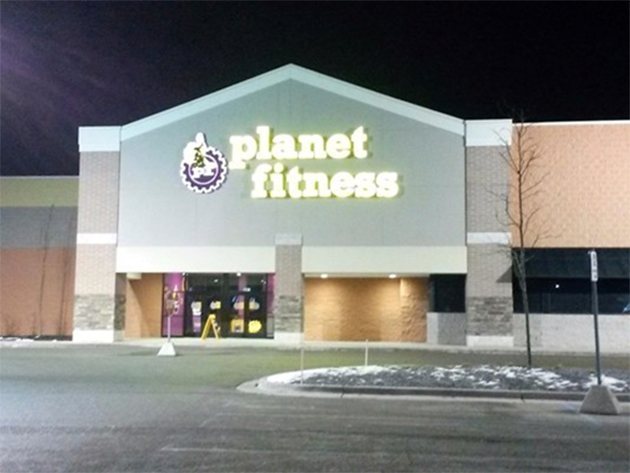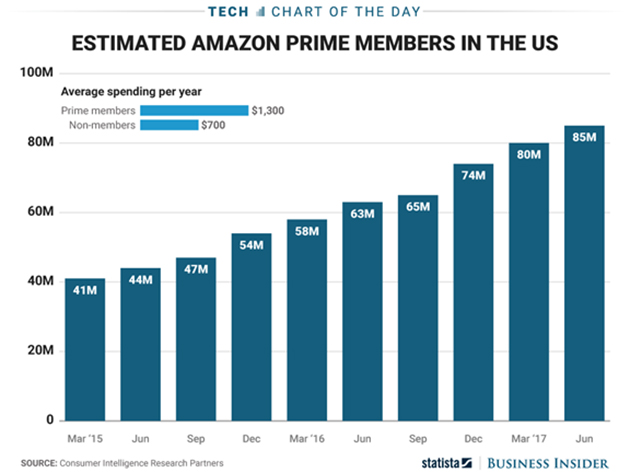I’m sure you’ve heard that malls are getting killed. Pretty soon there will be no malls. Except for those with a Planet Fitness!

Source: WZZM
There has been lots of ink (and electrons) spilled over the death of retail.
Everyone knows it is only a matter of time before Amazon puts every department store, every mall, every brick-and-mortar retailer out of business. Amazon gets an infinity market cap and everyone else gets zero. Sound familiar?
That’s the accepted wisdom.
Is Amazon a great business? Yes.
Is a department store a bad business? Probably.
Does Amazon get 100% market share, with department stores getting zero? Probably not.
Amazon has over 80 million Prime subscribers in the US. It’s not quite saturated, but it’s getting close.

I admit to being a Prime member, a late adopter.
It is pretty cool. Stuff shows up on my doorstep in two days, for free. The huge poker chip set I just ordered probably weighs about 40 pounds—free shipping! And I get all the Prime movies and TV shows.
Sometimes, when I reflect on what a good deal Amazon Prime is, I think that I’m picking Amazon off. But they’re probably picking me off! 80 million customers times $100 is a lot of money.
Here is my thesis: Amazon will grow and grow, but there will always be a role for physical retailers. A reduced role, for sure, but there will always be a role.
From a capital markets standpoint, now might be the time to put on the trade.
The Bottom
This is when I started thinking that we’ve reached a bottom in physical retailers: Last week, ProShares—a $27 billion ETF manager—registered to list some double short leveraged ETFs on brick and mortar retailers!
According to Bloomberg, “The ProShares UltraShort Bricks and Mortar Retail fund and ProShares UltraPro Short Bricks and Mortar Retail fund will seek to use derivatives to generate daily returns of two or three times the inverse of an index comprising the most at-risk US retailers…”













Leave A Comment